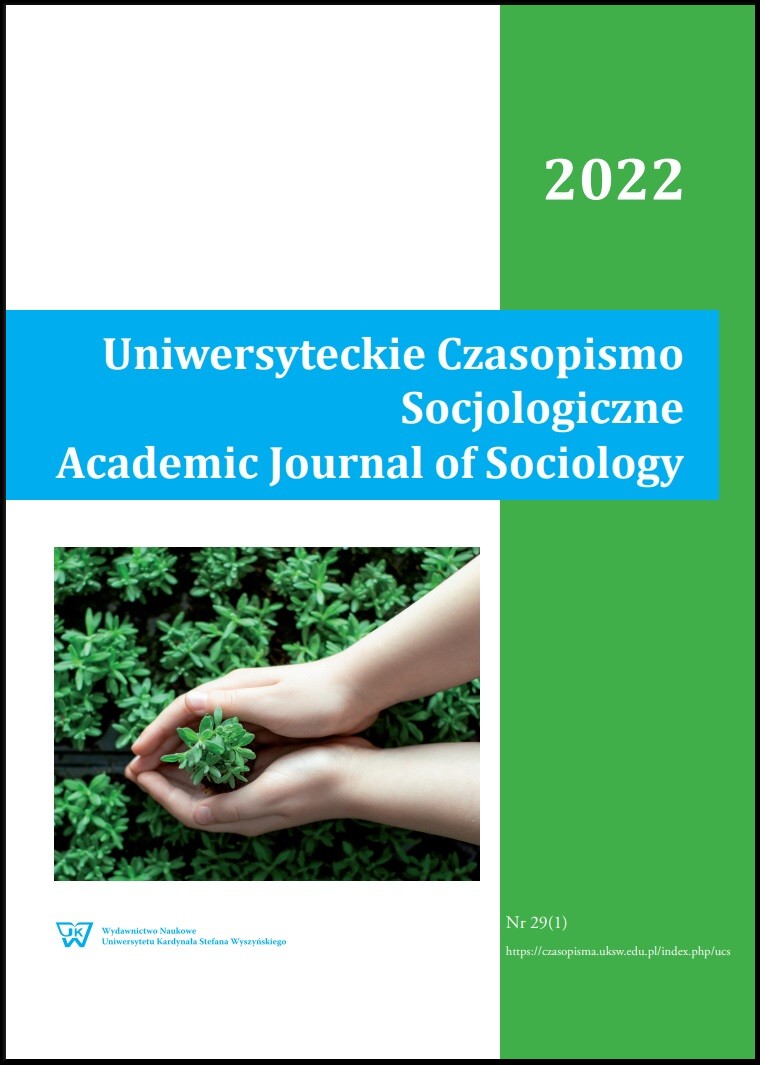Współczesne koncepcje cyklicznej zmiany społecznej
Contemporary concepts of cyclical social change
Author(s): Mateusz BieńkowskiSubject(s): Crowd Psychology: Mass phenomena and political interactions
Published by: Wydawnictwo Naukowe Uniwersytetu Kardynała Stefana Wyszyńskiego w Warszawie
Keywords: cyclical theories; social change; generation cycle; secular cycle; Neil Howe; William Strauss; Peter Turchin;
Summary/Abstract: The article considers cyclical social change in the concepts of twentieth-century researchers. Social change can be described as a repeating cycle or a linear model. In the first case, events return to the starting point after some time. Cyclical theories of social change have a long tradition dating back to antiquity, but over the centuries this approach has not found many followers. The purpose of the article is not only to present contemporary cyclical theories but also an analysis of the mechanisms which divide cyclical theory. The article will analyse Oswald Spengler and Arnold Toynbee theories describing the mechanisms of change in relation to the development cycle and the fall of civilization. However, the work will not omit the most recognized sociological cyclical concepts – Vilfredo Pareto and Pitirim Sorokin concepts. The article will also analyze two cyclical theories from the turn of the 20th and 21st centuries. The concept of the Howe and Strauss generation cycle and the concept of the secular cycles by Peter Turchin. It is also important to compare these theories with the 20th-century cyclical concepts recognized in sociology.
Journal: Uniwersyteckie Czasopismo Socjologiczne
- Issue Year: 29/2022
- Issue No: 1
- Page Range: 23-35
- Page Count: 13
- Language: Polish

